Liberal media figures press Democrats to defend not debating Republican opponents
Journalists and commentators at ABC and CNN criticized Democrats who wouldn't debate their Republican challengers in the November 8 election.
Journalists and media commentators at ABC, CBS, and CNN are pressuring Democrats who've shied away from debates before the midterm elections.
Democratic candidates in Arizona, Virginia and Pennsylvania have backed out or refused to debate their Republican opponents this election, most notably Arizona gubernatorial candidate Katie Hobbs.
Some candidates have cited their opponent's 2020 election beliefs as the reason why they will not debate them, while others have struggled to agree to debate terms.
The liberal hosts of ABC's political talk show "The View," had strong words for these Democrats on their Oct. 7 show.
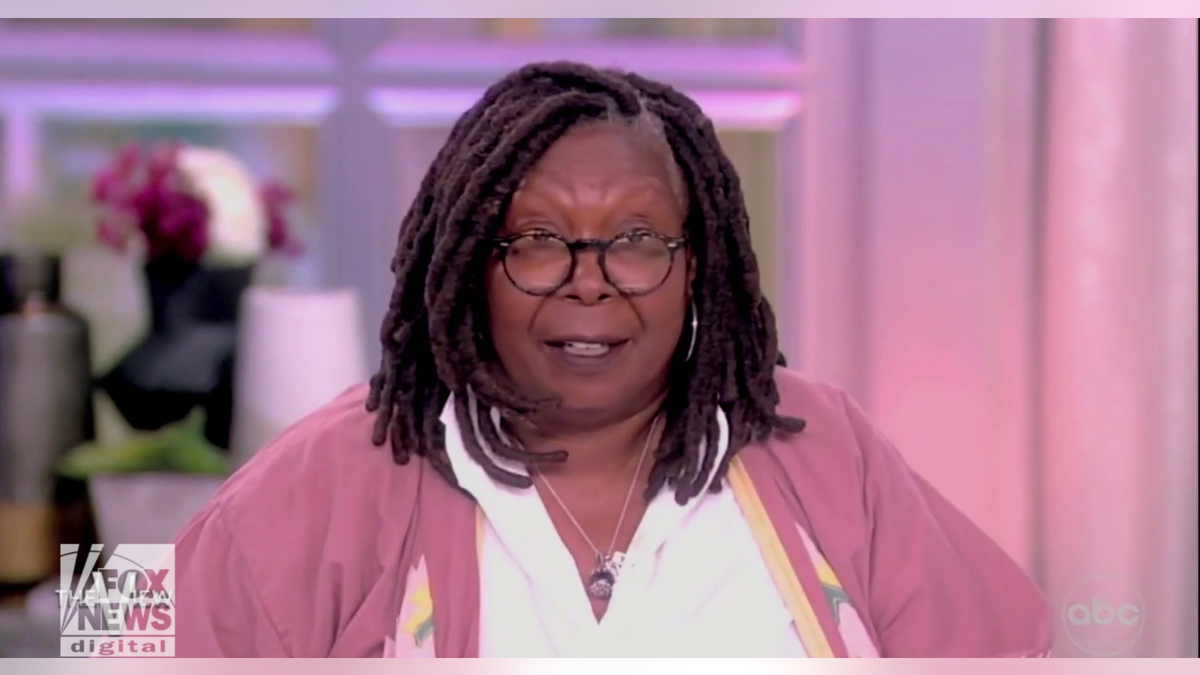
Whoopi Goldberg challenged Democrats to "do [their] jobs." (ABC Screenshot / The View)
"Now, is that the right way to do it or do you still have to do your job even when other people refuse to do theirs?" a frustrated Whoopi Goldberg asked.
"I mean, how does that work? How are you going to say, 'No, I'm not going to do it,' and then they stand up there and continue to push the lie? Don't you have an obligation, Democrats, to come out and explain to us why we should vote for you?" she demanded of the Democratic candidates.
Fellow co-host Sara Haines slammed Democrats for putting "party over people" when candidates cite wide margins in the polls as reason for not debating.

"The View" host Sara Haines slams Democrats who won't debate their opponents because they lead in the polls. (Screenshot/ABC/TheView)
"Others are saying the victory is already sealed by percentages and polls, so they're just not going to do it. That's when party is put over people," she said. Haines also argued that debates were opportunities for voters to see how the candidates respond when their viewpoints are challenged.
"Those debates not only show us what they feel on policy, which you can find on a website, shows you if they make you feel better when you listen to it, how they deal with a challenged point of view, how they come back. There's a lot more we pick up from that. So, to not give us that chance because, as a party, they know whether they have a victory or not, is not fair," she said.
Co-host Ana Navarro said it should be "required" for candidates on both sides to debate for their constituents' sake.
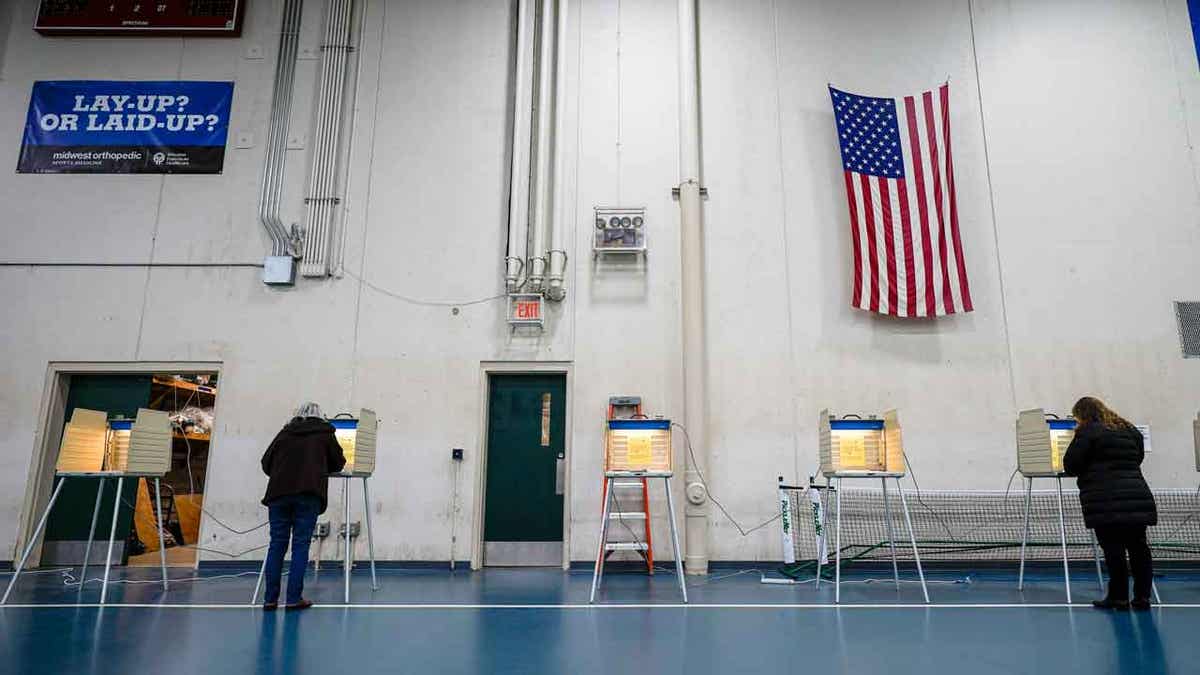
People vote at the Milwaukee County Sports Complex on Nov. 3, 2020, in Franklin, Wis. (AP Photo/Morry Gash, File)
"You owe your voters to tell them exactly what your positions are, to answer hard questions, to answer policy questions," she said.
In the battleground state of Arizona, Secretary of State Katie Hobbs, D., has been challenged several times by left-leaning journalists to explain why she won't debate Republican Kari Lake.
Hobbs has blamed Lake's views on the 2020 election as reason enough to not debate her.
On "GMA 3," co-host Amy Robach gently prodded Hobbs. "Why not challenge her, though, in a public forum? I’m just curious," she asked.
The Democrat told ABC that "the debate about debates is over."
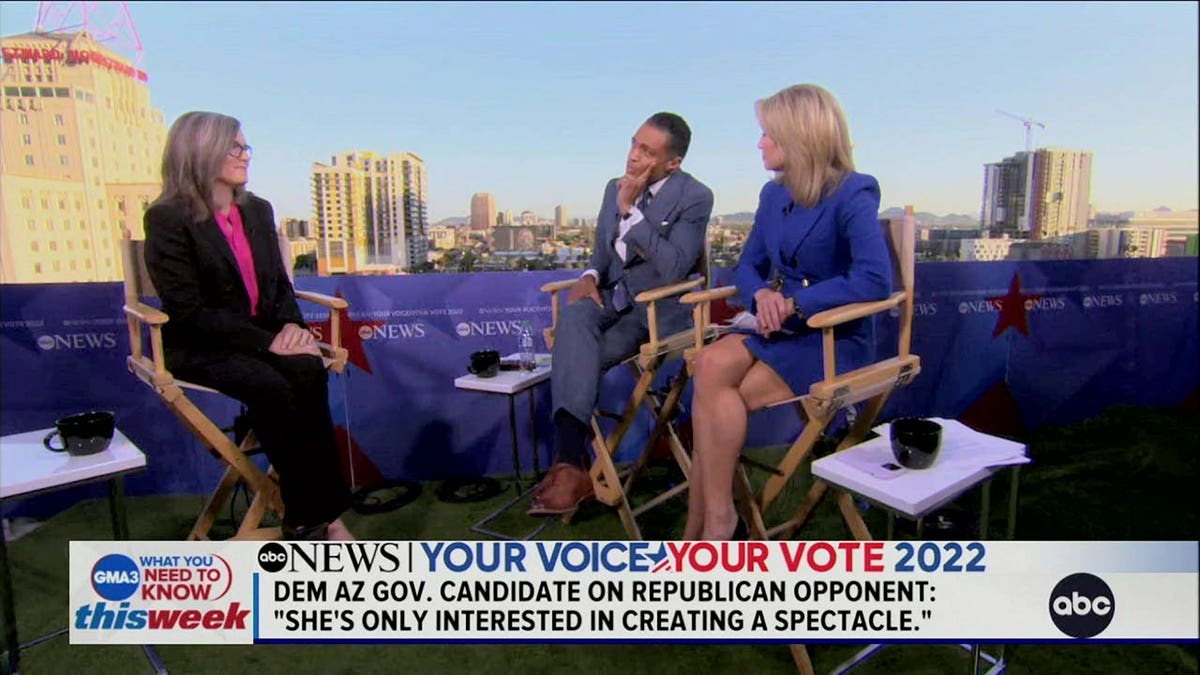
Katie Hobbs defended her refusal to debate Kari Lake while appearing on "GMA3: What You Need To Know" Friday (ABC)
"I’m running my campaign the way I’m running my campaign. I’m going to continue to make the case directly to voters," she added.
Co-host T.J. Holmes pressed the Democrat, to no avail, to "stand up" for her voters. He compared Lake to a "bully."
"[P]eople are putting somebody in that office that they want to stand up and fight for them. At worst, it could come off as you’re scared to step on that stage. At best, you’re not willing to confront," Holmes said. "We’re in a new era where sometimes, some politicians have been seen as bullies, and we’ve been taught since we were little kids that you got to stand up to a bully. You understand how that might come across? How do you make the case that we want to send you to fight for us, but you won’t even stand on stage with her?"
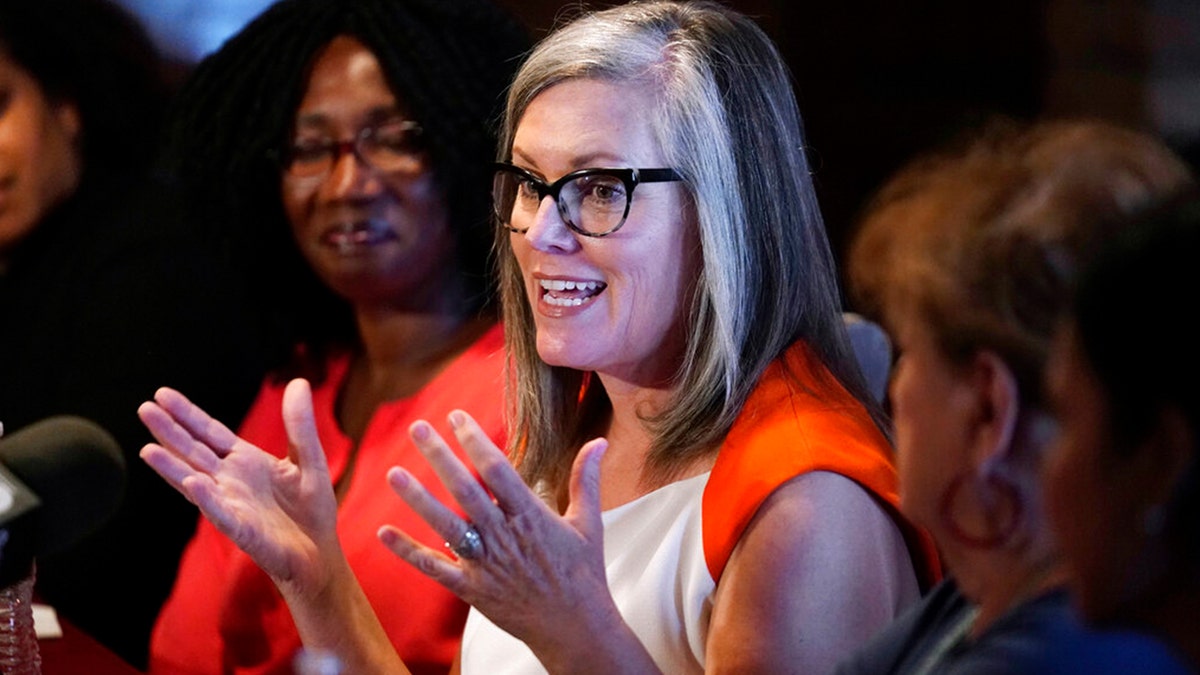
FILE: Arizona Secretary of State Katie Hobbs speaks at a roundtable event in Phoenix, Monday, Sept. 19, 2022. (AP Photo/Ross D. Franklin)
DEBATE SUPER TUESDAY: CANDIDATES IN TOP RACES FACE OFF IN DEBATE WITH BALANCE OF POWER ON THE LINE
On CBS's "Face the Nation," Hobbs again dodged questions about debating Lake. Asked if there were "any conditions" in which she'd agree to a debate, Hobbs said she preferred talking to voters through one-on-one interviews. She claimed Lake would make any debate a "circus."
Lake rejected that reasoning to Fox News host Ainsley Earhardt. The Republican accused Hobbs of refusing to debate her because she "can't even string a couple of words together," referring to Hobbs fumbling a question about the Latino community.
"It would be like a birthday cake versus a chainsaw," Lake added.
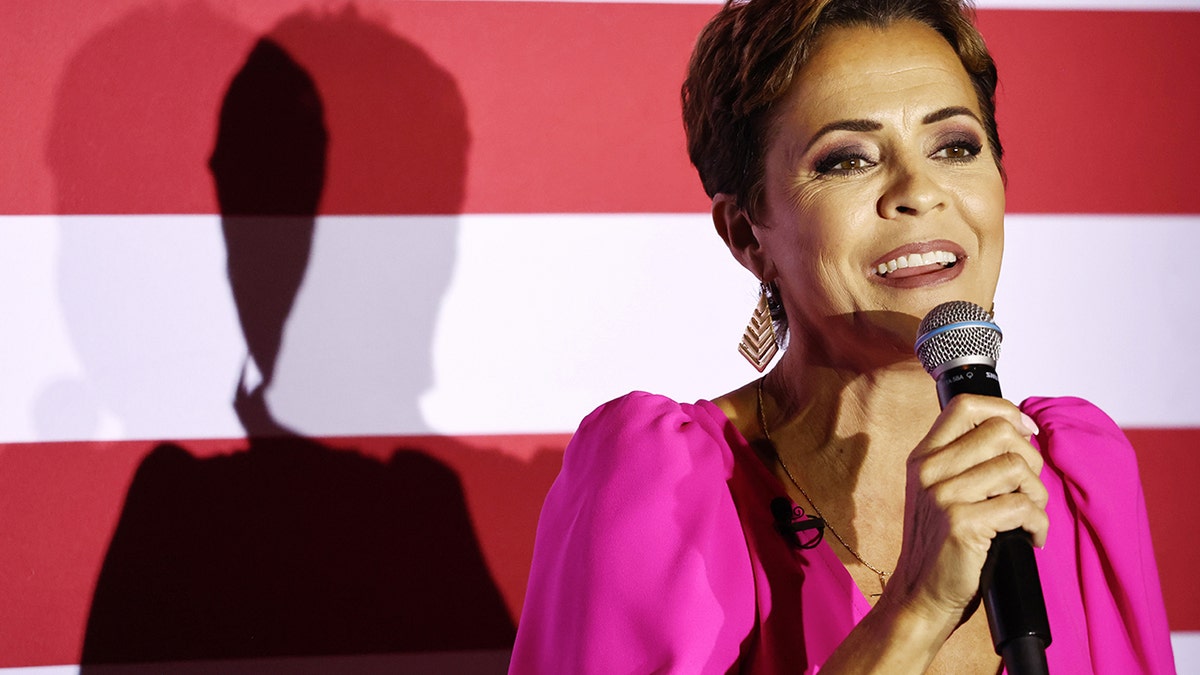
SCOTTSDALE, ARIZONA - OCTOBER 07: Arizona Republican nominee for governor Kari Lake speaks to the crowd during a stop on her 'Ask Me Anything Tour' at Chauncey Social on October 7, 2022 in Scottsdale, Arizona. Lake, the Trump-endorsed pick for governor, faces Democrat Secretary of State Katie Hobbs in the midterm elections on November 8. (Mario Tama/Getty Images)
Some Democrats waited until the home stretch to agree to debate their opponent.
After turning down "numerous debate opportunities" from opponent Dr. Mehmet Oz, Pennsylvania Senate candidate John Fetterman agreed to one debate with closed-captioning in late October. The debate was panned by many in the liberal media as "painful to watch."
New York Governor Kathy Hochul, D., also would only agree to one debate with weeks until the election with Republican challenger Rep. Lee Zeldin.
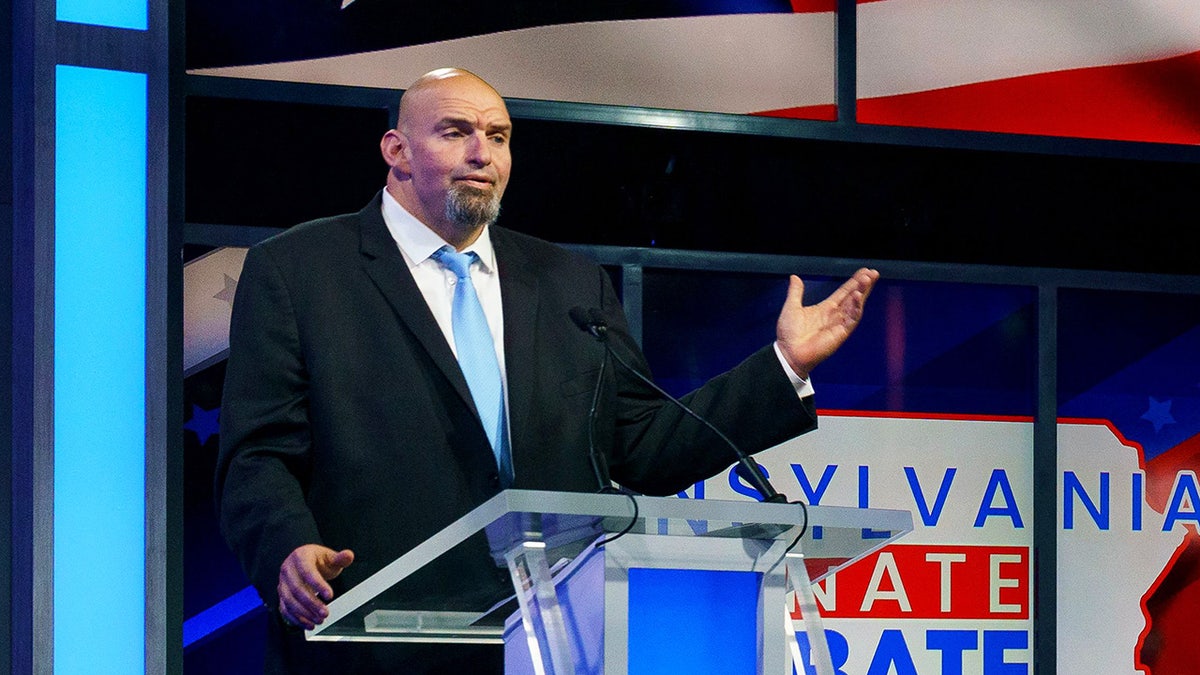
Pennsylvania Democratic Senate candidate John Fetterman participates in a debate with his GOP challenger Dr. Mehmet Oz on October 25, 2022 in Harrisburg, PA. (NewsNation)
In Georgia, it was the Republican taking heat earlier this year for dodging debates in Herschel Walker, who eventually agreed to a one-on-one matchup with Sen. Raphael Warnock, D.
In other races, Democrats and Republicans have come to an impasse over the debate terms.
In Virginia's competitive 7th congressional district, Democrat incumbent Abigail Spanberger allegedly backed out of a previously agreed upon debate. Her campaign objected to the organizer's initial moderator choice, conservative radio host Larry O'Connor. Debate organizers also cited Spanberger's campaign not being satisfied with the amount of security detail that would be present at the event.
Her opponent, Republican Yesli Vega, argued Spanberger had backed out of the event so she wouldn't have to answer questions about her ties to another Virginia Democrat who proposed a law that would criminalize parents who did not affirm their child's gender identity or sexuality.
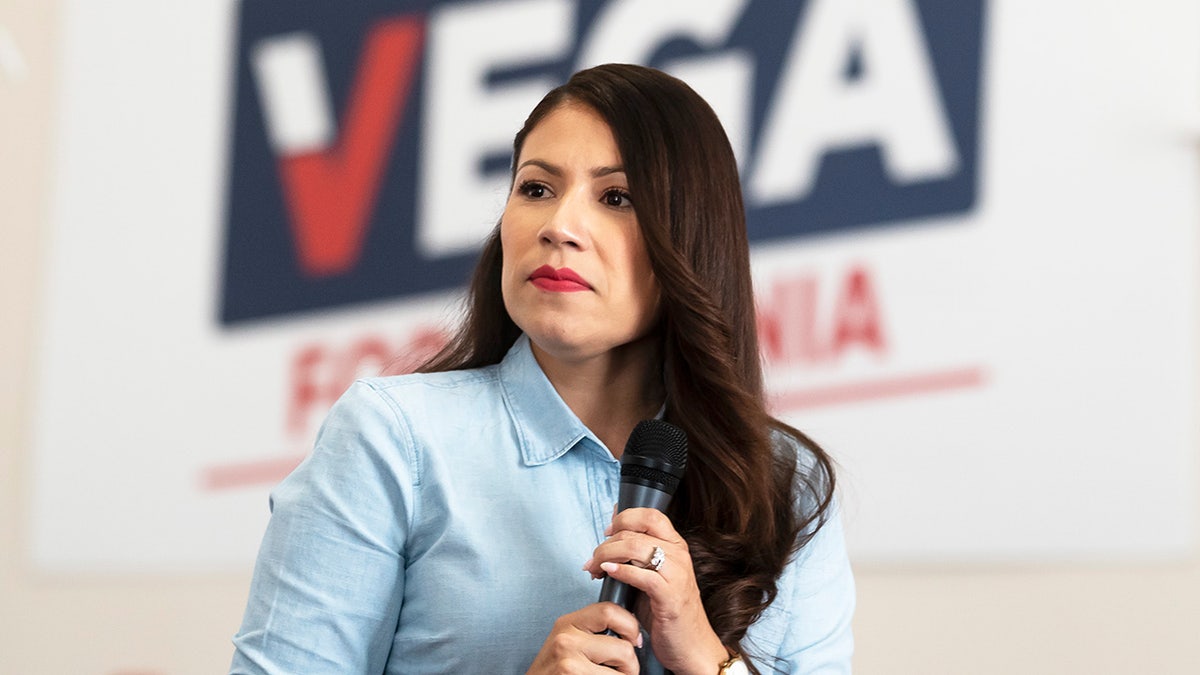
Yesli Vega told Fox News Digital that her opponent backed out of the debate because she couldn't defend her agenda or record. (Nathan Howard/Getty Images)
"Abigail Spanberger knew she couldn’t defend her anti-parent agenda or her failed record that has led to skyrocketing inflation and out of control crime. That’s why she backed out of our debate, and it’s why I’m going to win on November 8th," Vega told Fox News Digital.
Spanberger's campaign blamed her opponent for "stalling the debate into nonexistence" in a statement to The Washington Post. "Due to the Vega campaign’s pressure to corrupt the [debate organizer] Prince William Committee of 100’s efforts and stall the debate into nonexistence, with just five days to go before the scheduled debate, it became increasingly clear a debate was never going to become a reality."
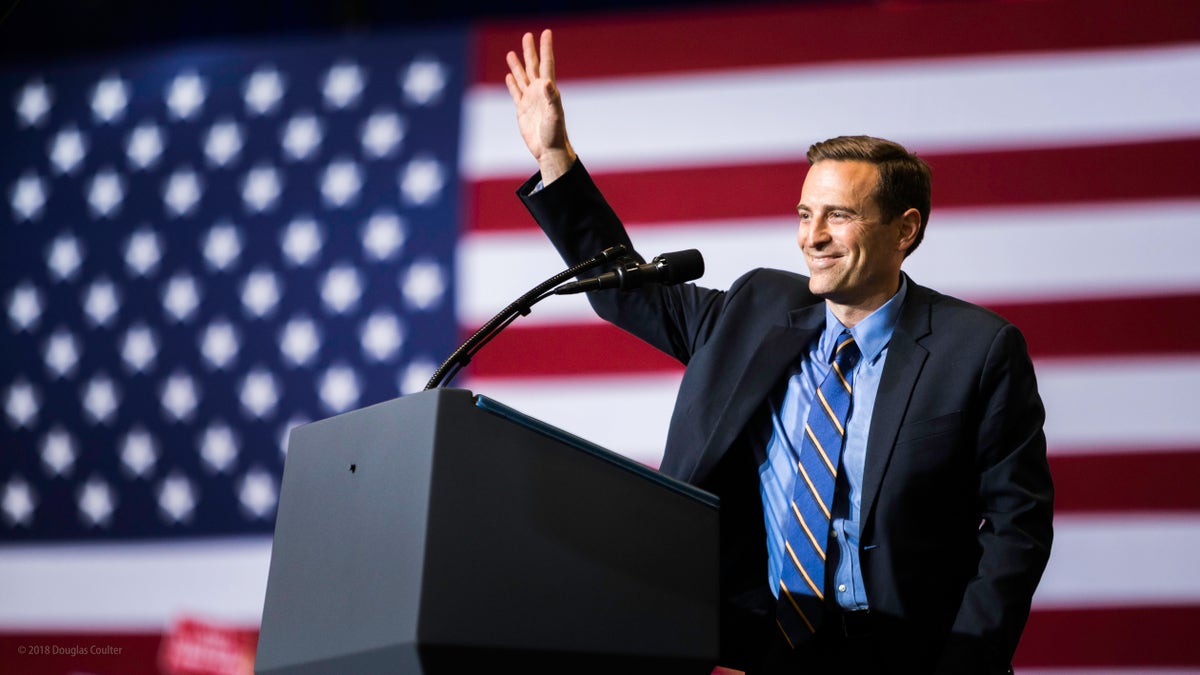
Former Nevada attorney general Adam Laxalt is the GOP nominee running to unseat incumbent Sen. Catherine Cortez Masto. (Adam Laxalt Campaign) (Laxalt for U.S. Senate)
Reports show a similar sequence of events happened in Nevada's Senate race and Pennsylvania's gubernatorial race where candidates could not agree on moderators or who would be hosting the debate.










































